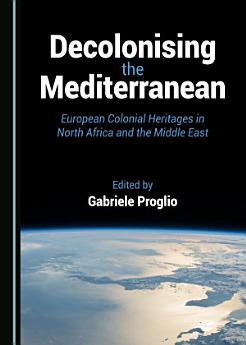Decolonising the Mediterranean: European Colonial Heritages in North Africa and the Middle East
Gabriele Proglio
març del 2017 · Cambridge Scholars Publishing
Llibre electrònic
125
Pàgines
family_home
Apte
info
reportNo es verifiquen les puntuacions ni les ressenyes Més informació
Sobre aquest llibre
Decolonising the Mediterranean means, first and foremost, investigating how the legacy of colonial rule over bodies and land has been used by other entities and powers to impose new forms of hegemony after the fall of empires and European powers. It means denouncing and dissecting the tools employed in the production of new geometries of power in the global Mediterranean, as well as in the farthest, most recondite corners of the Mediterranean World. Decolonising the Mediterranean is an epistemological practice of border dismantling and scrutiny of the ways in which powers overlap and intertwine. The multiplication of the border is investigated in this volume from an in-between position, namely a specific positionality of subjectivities, in order to connect the global and local, and address Mediterranean issues with a transnational approach. Decolonising the Mediterranean means thinking of the Mediterranean as a space of investigation beyond its geographical boundaries. Finally, it requires deconstructing the power relations at play, viewing the Mediterranean as an excess space of signification in order to reconsider the past and present stories and subjectivities erased by Eurocentric, nationalist historical discourse. In this sense, the Mediterranean may, then, be more than a “method”: a matter of politics, or a space without borders where the future can be reinvented from the bottom up.
This volume is structured into six chapters, each written by a different author focusing on a single North African, Maghreb and Mashrek country’s colonial legacy to investigate borders in a transnational perspective. While the research directions and topics of investigation adopted here are different, they can all be situated on the boundary line described above, and each chapter suggests a specific path for decolonising knowledge.
Sobre l'autor
Gabriele Proglio is Assistant Professor in History of the Mediterranean and History of the Arab World at the University of Tunis “El Manar”, Tunisia, and Research Fellow in the Department of History and Civilization at the European University Institute, Italy. His publications include Border Lampedusa. Subjectivity, visibility and memory in stories of sea and land (2017), Libia 1911–12. Immaginari coloniali e italianità (2016); and Memorie oltre confine. La letteratura postcoloniale italiana in prospettiva storica (2013) among others.
Puntua aquest llibre electrònic
Dona'ns la teva opinió.
Informació de lectura
Telèfons intel·ligents i tauletes
Instal·la l'aplicació Google Play Llibres per a Android i per a iPad i iPhone. Aquesta aplicació se sincronitza automàticament amb el compte i et permet llegir llibres en línia o sense connexió a qualsevol lloc.
Ordinadors portàtils i ordinadors de taula
Pots escoltar els audiollibres que has comprat a Google Play amb el navegador web de l'ordinador.
Lectors de llibres electrònics i altres dispositius
Per llegir en dispositius de tinta electrònica, com ara lectors de llibres electrònics Kobo, hauràs de baixar un fitxer i transferir-lo al dispositiu. Segueix les instruccions detallades del Centre d'ajuda per transferir els fitxers a lectors de llibres electrònics compatibles.






